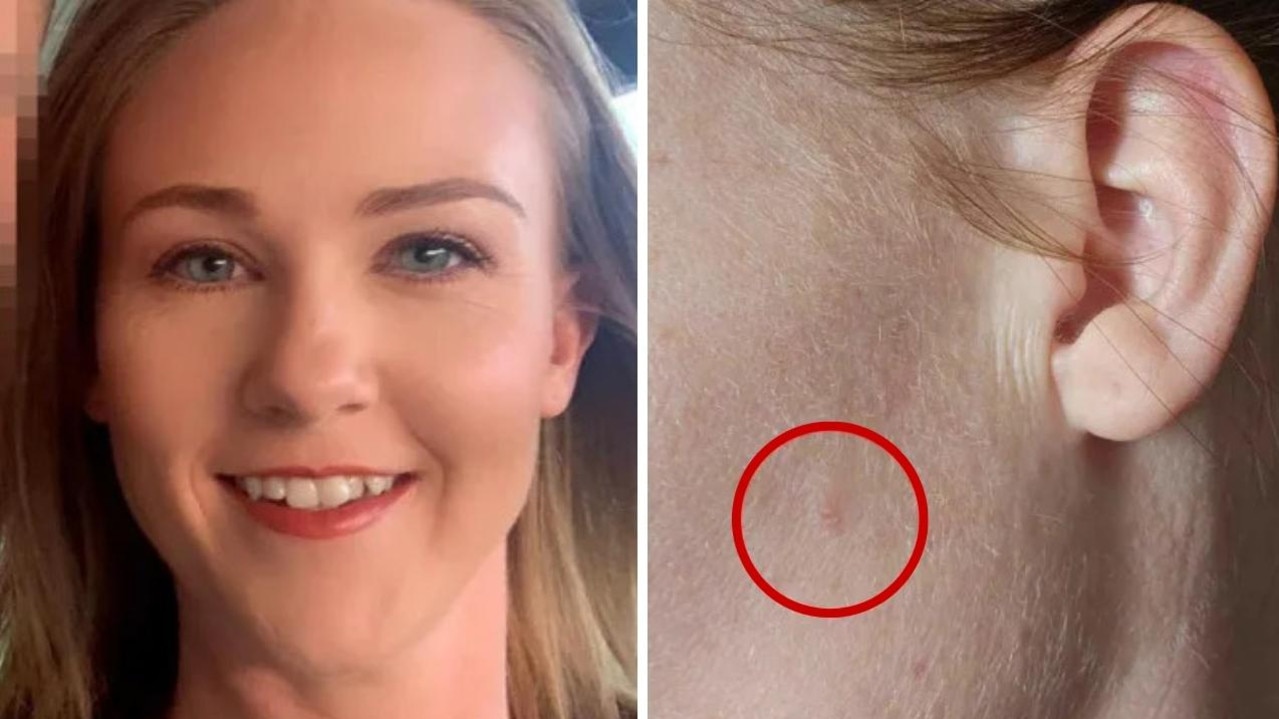A mum has urged Aussies to stay up to date with their skin checks after what she thought was a pimple led to a harrowing diagnosis.
Kate Bourke, from Queensland, said she had noticed the unassuming spot appear on-and-off for two years but thought nothing of it.
It wasn’t until a separate health scare led her to get the pimple-like mark checked that Ms Bourke discovered she had squamous cell carcinoma (SCC).
The 34-year-old took to social media to urge Aussies to get their skin checked.
“I thought I would just remind everyone that something you may think is just a pimple may not be,” she wrote.
“Please get your skin checked before you regret it, and please see a skin cancer specialist not a GP.”
Alarmingly, multiple commenters said they weren’t aware such a seemingly harmless spot could be so sinister.
“Wow thank you for sharing this. I have one almost in this exact spot that looks identical and also comes and goes … I’ll definitely be getting it checked asap,” one person wrote.
“Thanks for sharing. I didn’t know it can look like that (which seems quite harmless). This is good to know,” added another.
SCC accounts for about 30 per cent of non-melanoma skin cancers, according to the Cancer Council. The other 30 per cent are basal cell carcinoma (BCC), which Ms Bourke also had removed from her face.
“If I hadn’t had the BCC on my nose removed previously, I would not have ever even considered the pimple on my cheek could have been skin cancer,” she told Yahoo.
Ms Bourke explained that, as a redhead, she tends to “burn very easily” and is very sun-safe.
“If I’m going to go do something outdoors like mow or go for a walk, I always put sunscreen on. I tend to avoid doing anything outdoors for very long because I know I’m going to burn,” she said.
It’s estimated that more than 1500 people have been diagnosed with non-melanoma skin cancer in Australia this year.
Their average age at diagnosis was 76 years old, but the cancer can affect people of all ages. While most non-melanoma skin cancers are not life-threatening, they can cause complications and so it is important to have them checked and treated.
Signs and symptoms of SCC:
- Thickened red, scaly spot
- Rapidly growing bump
- Looks like a sore that has not healed
- May be tender to touch
BCC, on the other hand, often has no symptoms and tends to grow more slowly without spreading to other parts of the body.
